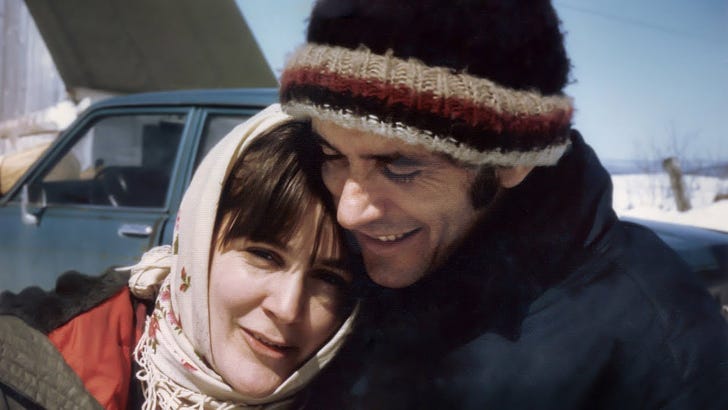Connecting with the Person, Not the Label
Approximately 1 in 10 American men have urinary incontinence with rates rising greatly in men over 60 years old. In Japan, they sell more adult diapers than baby diapers.
It’s about time we get over belittling terms and labels, such as “adult diapers” and “retarded.” Just as we are replacing disparaging words that describe people who happen to have a disability, we can replace disparaging words that describe some older people. “Adult diapers” can be replaced by “briefs,” or “incontinence products.”
Elders who happen to have a disability are like people of any age who happen to have a disability. For example, in federal law, the term “mental retardation” was replaced by “mental disability, “ and in society, a newer description is “an invidual with an intellectual disability.”
“Cancer” is a general term that can refer to different types of cancer and different stages of cancer. Some cancers are curable and others are not. Cancer is also a term that means something you want to get rid of. It can be as minor as a basil skin cancer that can be removed early on, or a more malignant cancer. Another way of looking at this term (and other terms) is as a challenge to deal with.
Film stars, such as Peter Dinklage (Game of Thrones, She Came to Me, Cyrano) inspire us to view the whole person, not just their disability. When we view others, let’s look beyond their outward appearance, and not just look, but also listen, beyond stuttering and jumbled words.
Anything that bothers us about another person, we have in ourselves.
Or, could be a past trauma that affected us deeply. When we see or hear an elder forget a word, initially we might be afraid of getting old and becoming forgetful, ourselves. Instead of correcting her, or pushing her to recall the word, we can take a breath, be quiet, and either let her retrieve the word or not. Let’s act, not out of fear, but out of love. If an elder with whom we are close, forgets his keys (phone, wallet, bag, coat, or ipad), give him a smart electronic key or or other tagged object finder. That’s acting out of love for another person, not fear. Since most of us have misplaced our keys or other belongings at some point in our lives, we might give ourselves, as well as our loved one, a tagged object finder before we lose it altogether. That’s acting out of love for ourselves.
Let’s deal with the situation, not the fear.
Some folks can improve memory by doing crossword puzzles or playing word games. Others may prefer to sharpen their wits by playing a musical instrument, singing a favorite song, listening to favorite music, drawing, exercising, gardening, playing bridge or mahjong, writing, or volunteering.
Still others may not care to improve their memory, but rather focus on other ways of being, such as meditating, reading, watching movies, taking brief naps during the day, relaxing, sitting on a park bench and watching the world go by.
A medical practitioner may use the term “Alzheimers’s” to recommend a drug that can help individuals at certain stages of a particular condition. Obviously, individuals at different stages of a condition may need increasing levels of support. However, as lay persons, we can look beyond the term and connect more with a person who happens to have that condition.
Calling the condition a “disease” doesn’t help. It just separates us from that person. The Oxford English Dictionary calls “disease” “lack of ease.” What about talking less and “being” more — being at ease with oneself or with others? If that means not talking, doing, or moving as much as when one was younger, so be it. Maybe “normal” people in our society can learn from those with memory loss how to be at ease with ourselves, how to be still. And when we talk to a loved one, let’s talk in our normal tone of voice, not as we might talk to an infant.
Managing Fear of Forgetfulness
If we are afraid of losing out minds, let’s acknowledge that fear and move beyond it. The best film I’ve seen so far to deal with fear of losing our minds is Dear Audrey (see trailer at beginning of this article). When Canadian filmmaker’s (Martin Duckworth) wife Audrey Schirmer was diagnosed with Alzhiemer's, he stopped making films in order to care for her full time.
Dear Audrey revisits those moments using excerpts from Martin’s films and Audrey’s photography. As Audrey's condition degrades, Martin's involvement and love grow stronger. Their daughter Jacqueline, a person with autism spectrum disorder, also struggles with her mother’s illness, but Martin is devoted to making his wife and daughter's lives meaningful. (Source: Wikipedia: Dear Audrey)
A Dear Audrey Activity
As you watch the film, think about these questions:
Do you identify with any of the characters in the film? If so, with whom?
How does Martin make his wife and daughter’s lives more meaningful?
How does he make his own life more meaningful?
How could you make the life of a loved one more meaningful?
How could you make your own life more meaningful?
Ways to Watch the Dear Audrey Film (or another film about stages of memory loss)
I served on the Legacy Film Festival on Aging Board 2022-3, when we showed the film. You may or may not choose to contact an organization or film festival to show the film or volunteer to serve on the Board of a film festival, such as Legacy Film Festival on Aging, and show a variety of films that capture the aging process.
Within certain boundaries, we have the power to choose what we do and how we adjust to what life hands out to us. What are your choices?




